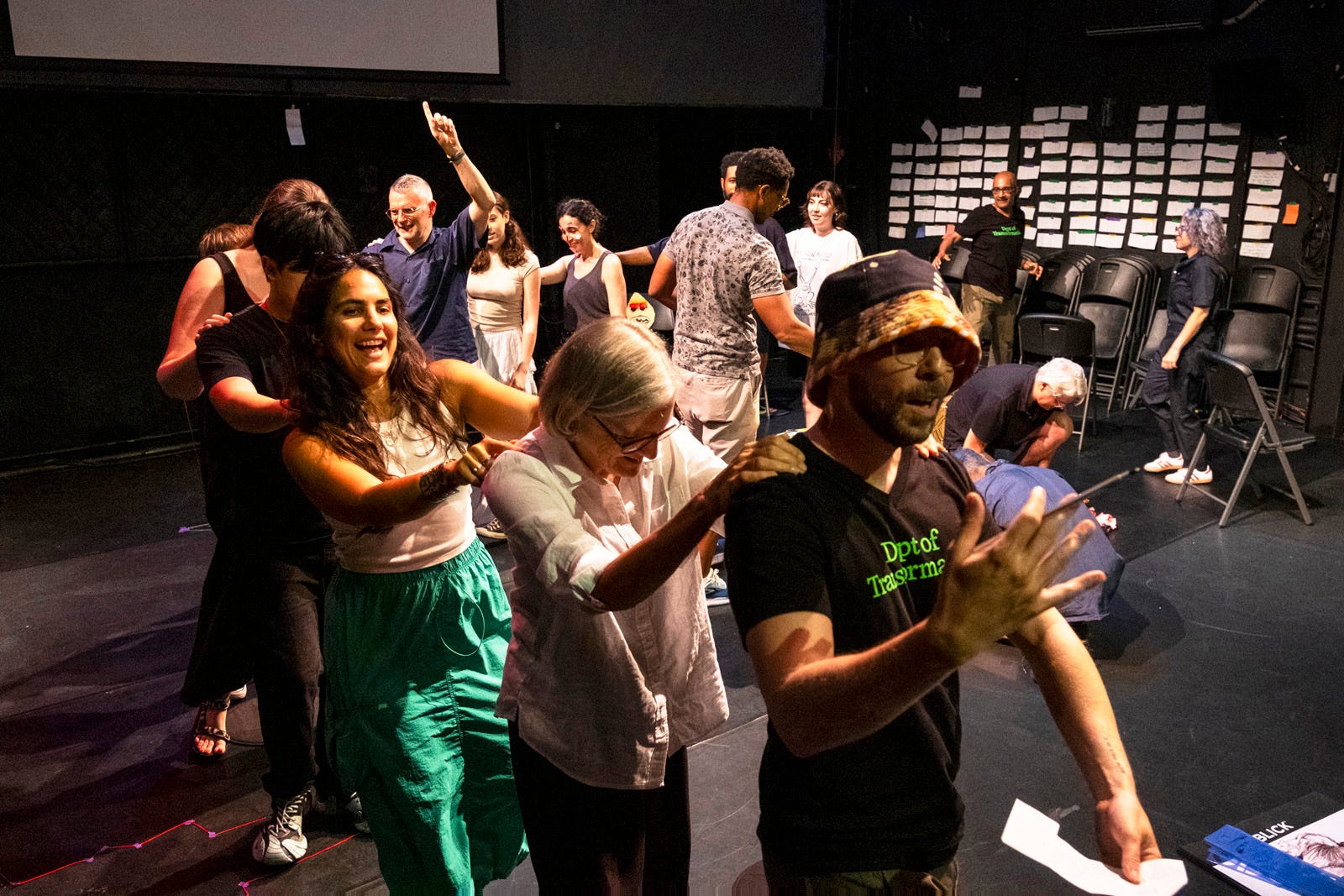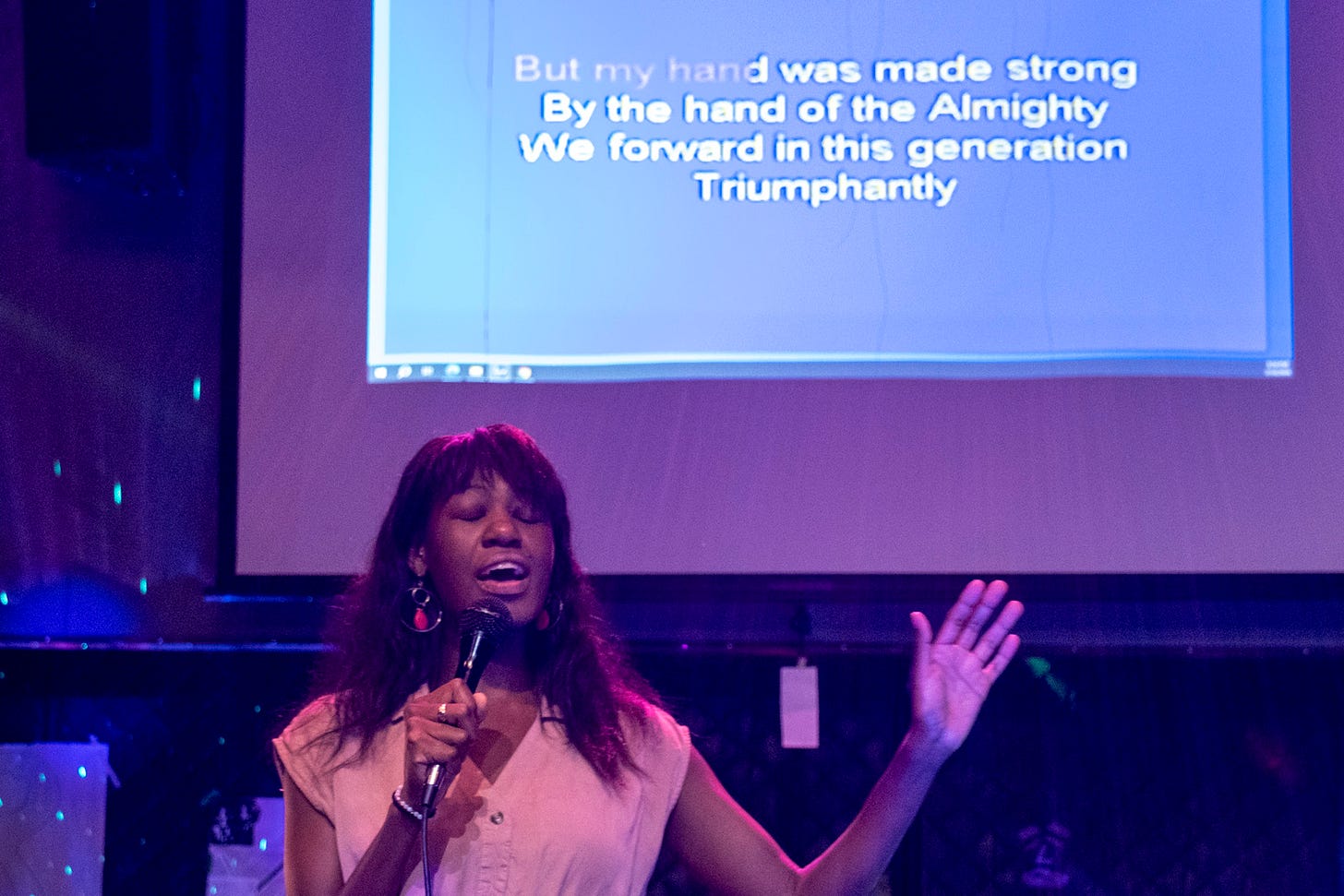All That You Touch, You Transform
Updates from D🌏T’s prolific past period and a little look at what's ahead
Dear loved ones,
In 1993, Octavia E. Butler published Parable of the Sower, a bleakly post-apocalyptic look at what looked like the far future. It’s been a sci-fi favorite for decades and made its way onto the New York Times bestseller list during the pandemic. In Parable, Lauren Oya Olamina, a prescient teenager with hyper-empathy, bears witness to ever-worsening environmental, political, and social collapse. Amid the unfolding wreckage, she has visions of a new faith and begins to gather community around her. With her resourcefulness and creativity, Lauren represents a protean artist for an uncertain era. One of her core beliefs: “God is Change.”
The novel starts on Saturday, July 20, 2024. Tomorrow. I get chills just typing this.
The future is now almost now.
I last wrote to you all in 2023, when things looked a little different. There have been some ups and a lot of downs across the globe. But in the background, here at D🌎T we’ve been gathering with artists, therapists, and thinkers, organizing workshops to prototype emergent methods, and testing out new tools and formats in experimental public events. Through generous residencies at Canal Projects and The Clemente, we’ve been able to make New York City our home base. The gift of space and time, along with the chance for conversations with our collaborators and companions, has helped us to clarify what we’re doing and why.
D🌍T’s work stems from a simple belief: that the arts can serve as an experimental space to support connection with oneself, others, and the planet as a whole. We are looking ahead to a future in which people have the resources needed to care for themselves, where mutual support and collaboration are part of everyone’s skillset, and where even conflict can be a teacher. In this vision, the arts have an essential role to play as modes for healing in unfamiliar and unexpected ways. By transforming how we practice and experience art, D🌏T seeks to transform the world.

Just last week we staged our most ambitious public gathering to date: Ways of Showing Up, a two-day event at the legendary Performing Garage in NYC’s Soho. In collaboration with Epicenter NYC, a Queens-based community news outlet, D🌎T’s Sam Rauch and I planned an epic 13-hour program that included mindfulness, experimental group therapy, a lunchtime reading/writing group, a walking tour, a graphic design workshop, anarchic collective artmaking, a vocal conflict workshop, a participatory lecture-performance, and a collective meal—plus protest karaoke! A true feast for the senses and panoply of ways for different people to participate and connect.
As artist, choreographer, and D🌍T companion Andros Zins-Browne wrote afterwards:
It was a real joy, as always. I’m amazed that you’re able to assemble these groups of curious people together. I think it’s really important for the field of art that laments its own soullessness, but then seems incapacitated to do much about it. And I think it’s important for fields of care and healing to be in touch with practices that have edge, that activate rather than passivize healing processes, that bring weirdness in as practical ally to health and wellbeing.
I could not imagine better praise. Thank you, Andros, for bringing your own unique brand of weirdness (and a great love for both chaotic vocalization and group karaoke!) to so many things we’ve been organizing recently!

The multi-modal, long-form approach of Ways of Showing Up builds upon other major D🌏T projects such as our five-hour participatory event for Centre Pompidou and Villa Albertine’s Night of Ideas Jersey City 2024; the experimental symposium How can we gather now?, organized with Asad Raza for Washington Project for the Arts; a five-day workshop to share collaboration and transformation tools at Fusebox Festival 2023 in Austin; as well as the many reading groups, workshops, and public programs of our recent Groundwork residency at Canal Projects.
Our iterative process—workshopping ideas and practices in public—has already begun to seed new methods. Since the Spring, D🌎T has convened a regular meet-up of artists-turned-therapists in New York City. As a result of these gatherings, we’re now inviting such hybrid practitioners to offer free, public sessions to test out new formats. We’ve already staged three such sessions: Reflecting Forward with artist-turned-clinical psychologist Tamara Sussman at Canal Projects; Un-familia-r with therapist, social worker, and policy maker Stephen Hanmer D’Elía at The Clemente; and First Encounters with performance artist and psychoanalyst Aneta Stojnić as part of Ways of Showing Up. Starting in the Fall, we’ll be offering regular workshops like this at The Clemente for anyone who wants to participate. It’s a chance for audiences—as well as practitioners—to learn something.

This is just the start. In the Fall we’ll launch some even bigger D🌍T projects, including a hybrid curriculum focused on creative collaboration and conflict, distributed across a host of public universities during the US election season. We’re also beginning a long-term research project called “Museum as Hospital? A Diagnostic” together with other artists, curators, public health experts, entrepreneurs, and medical professionals. Our core inquiry: How can comparing these two types of public institutions—each focused on a kind of healing—help to identify systemic challenges and structural opportunities for the future?
The Financial Times recently connected D🌏T’s work with the long history of social practice art, which creates innovative forms of public engagement through artistic processes. Although it may seem smarmy to quote yourself in your own newsletter, I’ll go with it anyways:
“[Krishnamurthy] explains that people often assume transformation only counts when it’s on the scale of institutions or social structures. For him, it also happens in every conversation he has. ‘DOT is working to change the way that art and design are practiced so that the people it touches can transform the communities they are part of themselves,’ Krishnamurthy says. ‘This is how we see things spreading.’”
After Un-familia-r, our kick-off event at The Clemente featuring experimental group exercises for connecting with others, one participant shared a reflection: “The event was incredible. But it’s not reality. I can’t go back to work on Monday and bring these ways of relating there.”
I took a deep breath. After a moment, I ventured: I hear your point, but I respectfully disagree.
My conviction—and the reason that I’m doing any of this—is that we are not just passive subjects, we are creating reality right now. We can choose the red pill or the blue pill. We need to shape the world we want to see, through our daily interactions and conversations and connections and creativity. The arts give us the space and tools—as well a sense of freedom and challenge, bumpiness and play!—that we need in order to find even better ways to engage this work of world-building together.
If you also share this belief, then I hope that you’ll continue to participate in D🌎T however you can: by sharing this newsletter and encouraging friends & family to subscribe, by using the tools that we offer in your own everyday life, by reaching out to contribute feedback and new ideas, by coming to our events and learning with us, and by giving a tax-deductible donation to support our ongoing work.
No matter how you choose to be part of D🌍T, I’m so thrilled and grateful to spend this time with you, to breathe this air with you, to touch and be touched. To look to the futures ahead as ones that we possess the power to shape. To create and share new beliefs, together.
So, till the next time, please take good care of yourselves and those around you—friends and strangers alike. I look forward to seeing each of you soon, in one form or another.
Love,
Prem
P.S. Remember that even when times get tough, there’s still karaoke!





You are such an inspiration!